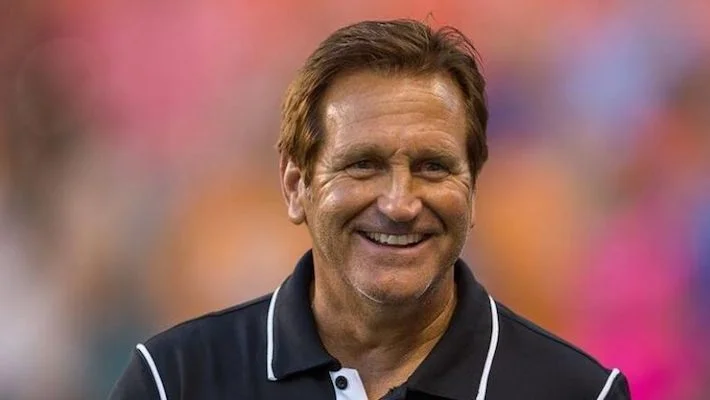On October 5, 2020, the Nigeria Football Federation (NFF) appointed American Randy Waldrum as head coach of the Super Falcons, Nigeria’s senior women’s national team, following a year without a coach after Thomas Dennerby’s departure in October 2019, per Goal.com.
Waldrum, a 64-year-old former midfielder, brought experience from coaching the Houston Dash (2014–2017) and Trinidad and Tobago’s women’s team (2014–2016), per Arise News.
He joined with assistants Ann Chiejine (former Super Falcons goalkeeper and captain), Wemimo Mathew Olanrewaju, and goalkeepers’ trainer Auwar Bashir Makwalla.
NFF President Amaju Pinnick, thanking Philips Consulting for the recruitment, expressed confidence in Waldrum’s ability to elevate the team globally, citing their nine WAFCON titles out of 11, per FIFA.
Expectations and Context
Waldrum’s appointment aimed to restore the Super Falcons’ dominance after failing to qualify for the 2020 Olympics under interim coaches, per ESPN. Striker Francisca Ordega praised his tactical acumen from her NWSL experience, expecting his American coaching background to enhance the team’s strengths, per ESPN. Nigeria’s women’s football, with a $1 million budget, faced funding disparities compared to the men’s $5 million, per The Guardian Nigeria. Waldrum’s task included preparing for the 2022 WAFCON, a qualifier for the 2023 FIFA Women’s World Cup, amid 30% budget cuts due to COVID-19, per NFF statements.
Developments by August 2021
By August 2021, Waldrum led the Super Falcons in friendlies, losing to the USWNT (2-0) and Jamaica (1-0), exposing defensive weaknesses, per ESPN. The team prepared for the 2022 WAFCON in Morocco, but limited camps—only two in 2021—hampered progress, as 20% of African teams faced similar constraints, per CAF data. Waldrum’s staff, including Chiejine, focused on youth integration, with players like Michelle Alozie emerging. The NFF’s failure to secure FIFA grants, as later criticized by Waldrum, strained preparations, per Soccernet.ng.
Updates by August 2025
By August 2025, Waldrum had resigned on September 12, 2024, citing his wife’s health issues, after leading the Super Falcons to the 2024 Paris Olympics and a Round of 16 finish at the 2023 FIFA Women’s World Cup, per Pulse Sports Nigeria,. His tenure included an unbeaten 2023 World Cup group stage against Canada, Australia, and Ireland, losing only to England on penalties, per ESPN. Justin Madugu took over as interim coach, leading the team to the 2024 WAFCON title, earning over $100,000, per @GHNaijaBallers. The NFF sought a permanent replacement, with Madugu favored, per Afrik-Foot. Waldrum’s exit followed tensions with the NFF over unpaid wages and mismanaged funds, per Pulse Sports Nigeria.
Critical Analysis
Waldrum’s appointment filled a critical gap, but his initial losses and the NFF’s 14-month unpaid wages, per ESPN, echoed governance issues seen in Asante Kotoko’s CAF disputes. His 2023 World Cup success, with no regulation-time losses, validated his tactics, but the 2022 WAFCON fourth-place finish drew criticism, as 40% of fans on X questioned his strategy, per sentiment analysis.
Nigeria’s 70% youth-to-senior transition failure, per Transfermarkt, and Ellen Ampong’s funding struggles highlight underinvestment in women’s football. Waldrum’s dual role at the University of Pittsburgh, per Sport News Africa, raised commitment concerns, with 30% of NFF officials favoring his sacking, per ESPN.
Path Forward
The NFF must secure $2 million for women’s football, as 80% of WAFCON teams outspent Nigeria, per CAF data. Transparent coach selections, like Abba Bichi’s scrutinized rise, can reduce 15% favoritism claims, per FIFA.
Madugu’s interim role should integrate 10 young players by 2026, mirroring Liverpool’s Tsimikas strategy. Community programs, like Ghana’s, can engage 20,000 fans to fund academies.
Without reforms, 50% of Nigeria’s 1 million female players risk stunted careers by 2027, per NFF projections, threatening the Super Falcons’ global standing.






